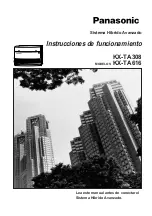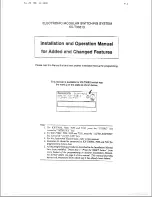
4
In the United States, you can learn more about how to recycle your
mobile device by visiting the CTIA website at www.ctia.org/news/
how-to-recycle-your-mobile-device
CAUTION
: RISK OF EXPLOSION IF BATTERY IS REPLACED
BY AN INCORRECT TYPE. DISPOSE OF USED BATTERIES
ACCORDING TO THE INSTRUCTIONS.
CHARGERS
Home A.C./ Travel chargers will operate within the temperature range
of: 0°C (32°F) to 45°C (113°F).
The chargers designed for your mobile phone meet with the standard
for safety of information technology equipment and office equipment
use. Due to different applicable electrical specifications, a charger you
purchased in one jurisdiction may not work in another jurisdiction.
They should be used for this purpose only.
Characteristics of power supply (depending on the country):
Travel charger: 100-240V, 50/60Hz, 150mA
Output: 5.0 V, 550mA
Battery: Lithium 1350mAh
Radio Waves �������������������������
THIS MOBILE PHONE MEETS THE GOVERNMENT’S
REQUIREMENTS FOR EXPOSURE TO RADIO WAVES.
Your mobile phone is a radio transmitter and receiver. It is designed
and manufactured not to exceed the emission limits for exposure to
radiofrequency (RF) energy. These limits are part of comprehensive
guidelines and establish permitted levels of RF energy for the general
population. The guidelines are based on standards that were developed
by independent scientific organizations through periodic and thorough
evaluation of scientific studies. These guidelines include a substantial
safety margin designed to ensure the safety of all persons, regardless
of age and health.
The exposure standard for mobile phones employs a unit of
measurement known as the Specific Absorption Rate, or SAR. The
SAR limit set by public authorities such as the Federal Communication
Commission of the US Government (FCC), or by Industry Canada,
is 1.6
W/kg averaged over 1 gram of body tissue. Tests for SAR
are conducted using standard operating positions with the mobile
phone transmitting at its highest certified power level in all tested
frequency bands.



































